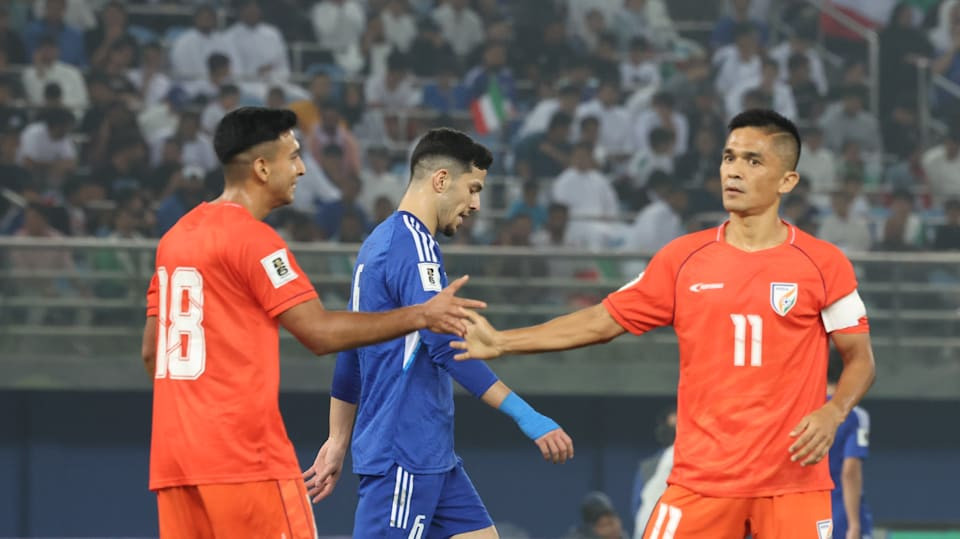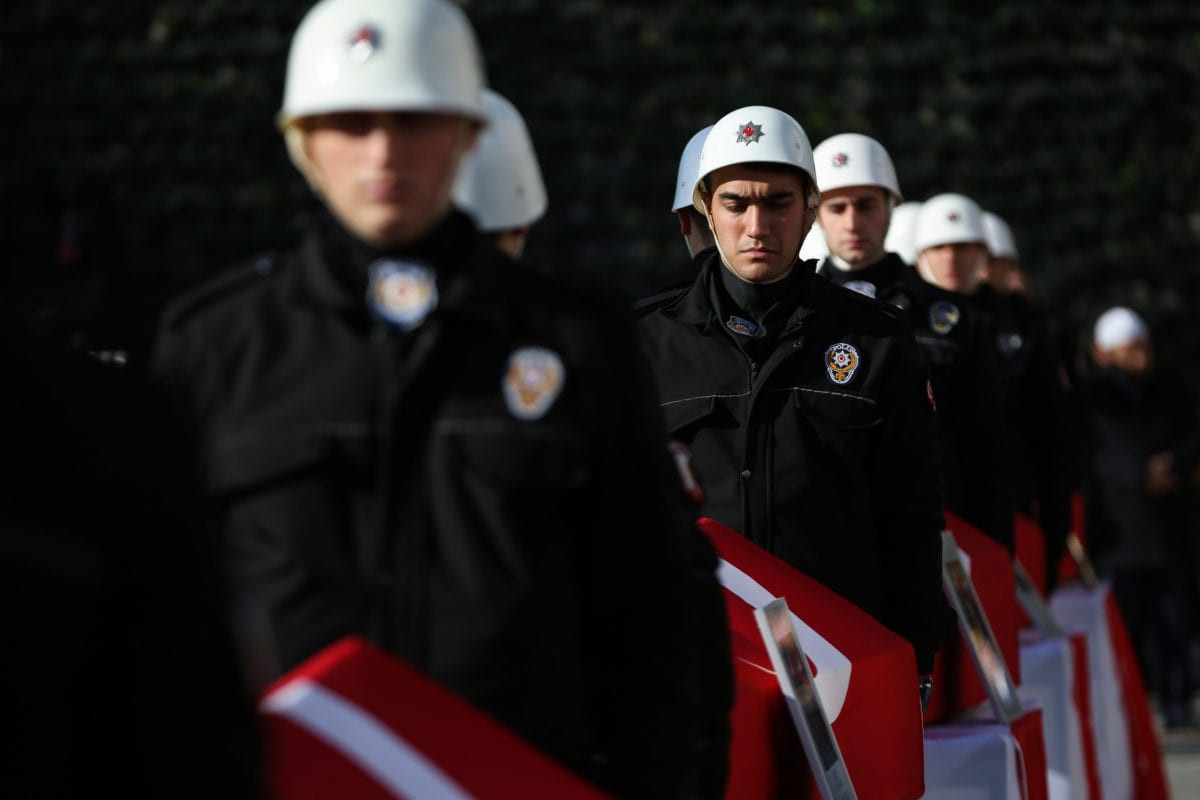The Road to North America: Asia's World Cup Qualification Kicks Off
For some time now Asia’s World Cup representatives have consisted of four from the quintet of South Korea, Japan, Australia, Iran and Saudi Arabia. Sometimes all five make it – as in 2018 and 2022 – and occasionally there is a gatecrasher as in 2010 with North Korea. For 2026, though, there will be eight automatic places on offer for the 18 teams that kick off the third round of qualification on Thursday and some unfamiliar names for global audiences.
For example, two out of the six-team Group B will qualify by next June, meaning that even assuming that South Korea make it for an 11th successive time, at least one of Oman, Palestine, Jordan, Kuwait and Iraq will join the East Asians in North America.
Iraq's Longing for World Cup Glory
Iraq are especially desperate. The one appearance back in 1986 came at a time when Saddam Hussein’s son Uday was in charge of the country’s FA, dishing out regular beatings of players that increased with the three one-goal defeats in Mexico. Since then a return to the global stage has been elusive for a nation that has always had talent, as the 2007 Asian Cup triumph showed, but Zico, Bora Milutinovic, Srecko Katanec, Dick Advocaat and Zeljko Petrovic are among the many coaches who struggled to get the team to fulfil its potential.
A lack of home advantage has not helped. No World Cup qualifier has been played in Baghdad since before the US-led invasion in 2003. The capital may still be off-limits for Fifa but Basra could be the springboard for success. More than 150,000 saw the Lions of Mesopotamia win all three games in the southern port city in the previous round – no team in Asia will relish going there with the World Cup at stake.
South Korea's New Era Under Hong Myung-Bo
Following the post-AFC Asian Cup dismissal of Jürgen Klinsmann and a couple of interim replacements, South Korea finally landed on the German's long-term successor when they appointed Hong Myung-Bo in July.
As a player, Hong holds legendary status among the Taegeuk Warriors faithful for his 136-cap international career which included a Bronze Ball-winning performance in a memorable fourth-place World Cup finish back in 2002.
Hong's previous spell in charge was a forgettable one although it has to be recalled that he was parachuted as Choi Kang-Hee's replacement after a trying qualification campaign for the 2014 World Cup -- only to step down following some disappointing displays in Brazil.
The 55-year-old did not even seem to want the job this time around and reportedly turned down the Korea Football Association's advances on numerous occasions, only to eventually accept their offer.
While he was apologetic, Hong received backlash for abruptly leaving his job with K League 1 giants Ulsan HD and there will certainly be intense attention on his second spell in charge right from the off.
Unpredictability and Uncertainty: Japan's Quest for Consistency
The erratic nature of Japan's performances under Hajime Moriyasu have been the key source of fuel for his critics.
Case in point -- the 2022 World Cup, when the Samurai Blue pulled off remarkable wins over Germany and Spain but somehow lost to Costa Rica in a lacklustre display where they showed almost no attacking intent despite being the favourites.
This erratic nature of the difference between their best and their worst continues to mystify plenty who believe that they are capable of being one of the world's leading national teams.
But in their final qualifier back in the second round, Japan pulled off a stunning display as Moriyasu opted for a revolutionary 3-2-4-1 formation that led to an emphatic 5-0 rout of Syria, who are no slouches themselves.
There is no denying the firepower that the Samurai Blue have, and that is even without the emerging Yuki Ohashi -- who netted in his first two games since a summer move to Championship outfit Blackburn Rovers but has not been deemed worthy of a maiden call-up just yet.
What approach Moriyasu opts for could just decide Japan's fate, especially with only two automatic qualifying spots up for grabs in the third round and Group C looking a three-way battle between the Japanese, Saudi Arabia and Australia.
The Underdogs: Can Indonesia Continue Their Rise?
Down in the dumps when Shin Tae-Yong took charge at the end of 2019, Indonesia have since made a remarkable rise that has culminated in a maiden appearance in the third round of Asian qualifiers for the World Cup.
In that time, the Indonesians also returned to the AFC Asian Cup for the first time since 2007 and managed to reach the round of 16, while the U-23s -- also coached by Shin -- narrowly missed out on the Olympic men's football tournament in Paris after losing an intercontinental playoff following a fourth-placed finish at this year's AFC U-23 Asian Cup.
Indonesia were helped by the draw in the second round, which pitted them against group favourites Iraq but also produced winnable ties against Southeast Asian counterparts Vietnam and Philippines.
They ultimately did enough to advance and have been rewarded with some glamour ties in Group C.
Australia and Japan lie in wait, but first up is a mouthwatering test against heavyweights Saudi Arabia on Thursday.
An almighty upset away in in Jeddah seems unlikely but perhaps of more importance is for Indonesia to show they can match it with the continent's best, which will be further testament to the constant improvement they have made in the past few years.
Group Dynamics: A Closer Look at the Contenders
Group A
Iran, Qatar, Uzbekistan, United Arab Emirates, Kyrgyz Republic, DPR Korea
Group B
South Korea, Iraq, Jordan, Oman, Palestine, Kuwait
Group C
Japan, Australia, Saudi Arabia, Bahrain, China, Indonesia
The Path to Glory: How It Works
Six teams, comprising the best third- and fourth-placed finishers from the three groups, will then be divided into two groups. The three teams in each group of these two groups will face the other once at a neutral venue. The top two teams will progress to the World Cup.
The second-placed sides will face each other in a playoff for a spot in the intercontinental playoffs for the remaining World Cup berths.
The Key Contenders and Potential Upsets
Defending AFC Cup champions Qatar and the team they beat in the AFC Cup semifinals, Iran, are the favourites to qualify from Group A. South Korea and Iraq are the favourites in Group B although AFC Cup finalists Jordan, who beat South Korea to reach the continental final, are expected to provide a strong challenge.
Group C is arguably the most competitive group, with record AFC Cup winners Japan and AFC giants Australia the favourites to qualify although Saudi Arabia are expected to be strong challengers while both China and Indonesia are more than capable of causing a shock.
Notable Matchups: Where the Action Will Be Hot
One of the biggest matches from the most competitive group will involve Saudi Arabia, who famously beat Argentina at the Qatar World Cup 2022. Al Jazeera will bring you live text coverage of the Green Falcons’ attempt to reach a third World Cup on the bounce.
Standing in their way are Indonesia, who are the only Southeast Asian side to remain in the qualifiers. The Saudis have won 12 of the 15 meetings between both sides.
The AFC’s most successful team in qualifying for World Cups, South Korea, face a Palestine side that have made history twice already this season. The Lions of Canaan, who have progressed past the second round of qualifiers for the first time, also reached the knockout stage of the AFC Cup for the first time in the tournament in Qatar. The odds are stacked against Palestine given South Korea have not lost a home qualifier since 2013.
Two Asian economic powerhouses are paired in the opening round, but there is a stark contrast in their performances on the football field. Japan are the seven-time record winners of the AFC Cup and heavy favourites to progress from their group. China are yet to win the continental crown and have only once, in 2002, reached a World Cup. Their last victory against Japan was in 1998, while the Japanese are unbeaten in their last 13 qualifiers, winning 12.
This game brings two neighbours and two teams that overachieved at the 2023 AFC Cup in Qatar. Jordan were defeated finalists, while fan favourites Palestine reached the knockout stage for the first time.
The Giants of Asian Football
Australia, Iran, Japan, South Korea, Qatar and Saudi Arabia all appeared at the Qatar World Cup 2022 and are strong favourites to make repeat appearances.
South Korea hold the AFC record for most appearances at World Cup finals with 11 previous qualifications to their name.
Japan are targeting an eighth consecutive qualification while Australia are hoping to get a sixth consecutive appearance.
The two AFC giants will be heavily threatened in Group C by Saudi Arabia, who have made seven appearances in total at World Cups.
Iran have reached the finals on seven occasions and another will mark a fourth straight qualification.
The Underdogs' Dreams: A Chance for History
Indonesia, the Kyrgyz Republic, Palestine, Bahrain, Jordan, Oman and Uzbekistan have never qualified for a FIFA World Cup.
The 23rd edition of football’s global showpiece is being staged across three countries in North America with Canada, Mexico and the United States all hosting fixtures throughout the competition. The final itself will be held in the US.
The Road Ahead: A Race to the Finish Line
The Asian Football Confederation’s third-round qualifying matches for the FIFA World Cup 2026 will begin on Thursday, as 18 teams battle for the eight places up for grabs.
For the underdogs, the 2026 World Cup qualification offers a unique opportunity to write their names in the annals of football history. The expansion of the tournament to 48 teams has opened the door for new contenders to join the global stage. As the journey to North America begins, the world will be watching as Asian football's giants and underdogs battle for glory.

















